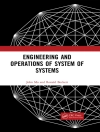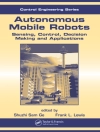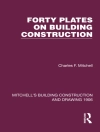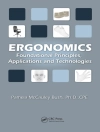What is Checkerboarding?
A solution to prevent swarming that requires no intervention within the brood nest, increases colony size and therefore honey yields and replaces the resident queen through supersedure.
Walter Wright, a retired NASA engineer, first invented the swarm prevention technique Checkerboarding. Join the three authors of this booklet for their take on the observational writings of Walter Wright by giving a simplified version of Wright’s original texts, alongside their own findings.
For many beekeepers swarming is an annual challenge. For those of us living in close proximity to non-beekeepers, there are particular sensitivities to be observed and swarming keeps us on our toes and preoccupies us through the late spring and early summer. There are whole books dedicated to swarming – the mechanics of it, how to recognise swarming, swarm prevention, swarm control measures and so on.
The authors explain their recognition for the importance of swarming with respect to procreation and genetic diversity. They also realise the angst beekeepers suffer when we get that knock at the door from a neighbour that states ‘your bees have swarmed into my garden/shed/porch’. And how can we deny that they are our bees?
Even without the proximity of neighbours most beekeepers endure a sustained period of colony inspections, checking for early swarm indicators i.e. queen cells. Therefore, the solution to swarm prevention which does not involve extensive hive manipulations, inspections, mitigation measures, remains one of the holy grails of beekeeping.
Checkerboarding, if it is carried out correctly, will prevent swarming and requires no intervention within the brood nest.
The authors of this document carried out successful Checkerboarding during the December 2019 season on five colonies. Between the three of them, they had previously had swarms each year for the last 9 years. Sometimes many swarms per year and sometimes many per hive! In 2020 they had none.
Some of the by-products of Checkerboarding include significant increases in colony size and therefore honey yields. Another is the resident queen is replaced through supersedure.
‘Checkerboarding’ is simple to implement. What is more complicated is the understanding of the internal operations of the colony that make this system successful. The authors have written this booklet with a brief explanation of how to Checkerboard early on. You will also find more details of the colony dynamics and the common terminology used when discussing swarms in the ‘Notes and Explanations’ section of this booklet.
This booklet is suitable for all UK beekeepers and is in an easy to follow format of how Checkerboarding can work for you.
Table of Content
1. What is checkerboarding and how do you carry it out?
2. Where did this idea originate?
3. Checkerboard examples
4. The Checkerboarding year
4.1. Late summer/autumn – Brood frame reserves
4.2. December - Checkerboarding
4.3. Spring Management
4.4. Summer – Nectar management
5. End of year colony size
6. Notes and explanations
6.1. December Checkerboarding
6.2. Spring management
6.3. Backfilling
6.4. Queen excluders
6.5. Drones
6.6. The honey reserve
6.7. Swarm prevention methods
6.8. Congestion
6.9. Reproductive swarms
6.10. Overcrowding swarms
7. Finally – words from Walter Wright
About the author
Hobbyist beekeeper living in adjoining villages to the other authors bordering West Berkshire and South Oxfordshire.












